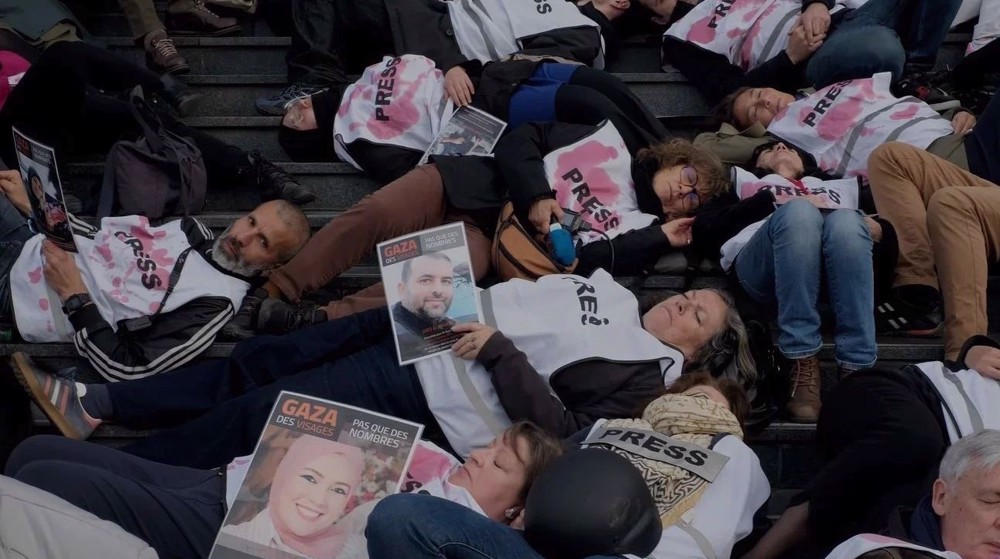French protesters hold nationwide rallies against labor reforms
Thousands of angry protesters have held fresh nationwide demonstrations against a government decision to bypass parliament and impose a relaxation of the country’s protective labor laws by decree.
Labor and student unions as well as far-left parties joined the demonstrations against proposed labor reforms in the French capital Paris on Thursday.
News television channels showed footage of young protesters blocking roads and school entrances with garbage bins and burning tires.
The Interior Ministry has reported traffic halted by road blockages in some places across the capital. The ministry has also advised motorists to stay away from central Paris ahead of an afternoon march.
People also took to the streets in several areas across the northwestern city of Rennes and southwestern city of Toulouse to express their strong opposition to the government decision.
During the rallies, protesters chanted slogans against French Prime Minister Manuel Valls, Labor Minister Myriam El Khomri, President Francois Hollande and head of the French employers’ association MEDEF Pierre Gattaz, accusing them of “treason.”
Crowds have also started to gather in other major towns and cities across France to hold mass rallies.
Reports indicate that several hundred police have already been wounded in a series of clashes with protesters, many of them hooded youths hurling stones and petrol bombs.
The fresh protest comes as after France’s embattled Socialist government made use of the constitution’s Article 49-3, allowing them to bypass parliament and force through a controversial labor reform bill.
The government of Premier Valls also faces a no-confidence vote over the bill that has drawn hundreds of thousands onto the streets over the last two months.

The government was expected to survive the confidence vote easily since it was called by opposition parties that do not have enough votes to get it through.
The French government says the proposed labor reforms are aimed at curbing the country’s unemployment rate, which President Hollande is trying to lower to below 10 percent.
Protesters and workers’ unions, however, say the government wants to make it easier and less costly for employers to lay off workers.
The deeply unpopular president is now in an uncomfortable position a year from elections.

France detains Iranian journalist amid crackdown on pro-Palestinian voices

Israel revokes visas for 27 French MPs after Macron signals support for Palestinian state

French journalists stage 'die-in protest' in support of Palestinian reporters
Global reactions, offers of assistance pour in after huge deadly explosion in S Iran
Iran pres. stresses collective, effective fight against terrorism in calls with India, Pakistan PMs
Iran declares holiday in Bandar Abbas port as fire still raging
VIDEO | NY protesters demand end to genocide on Global Day for Gaza
VIDEO | Pope Francis funeral mass held in St. Peter's Square
VIDEO | UK education activists focus on decolonization
Iran supports any measure to strengthen peace, tranquility: Pezeshkian
Iran, Russia agree to transfer gas via Azerbaijan: Minister











 This makes it easy to access the Press TV website
This makes it easy to access the Press TV website